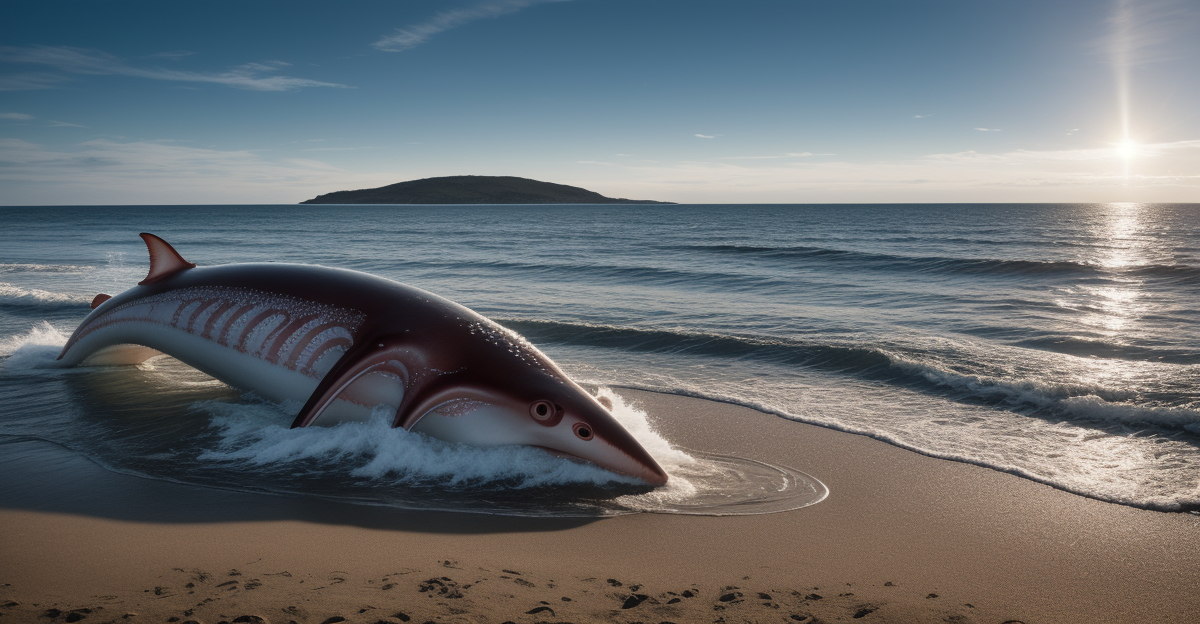
Giant squid strandings are on the rise. Are sonic weapons to blame, or is something even bigger lurk
Alright, deep breath, because we’re plunging into the abyss – a world of giant squid, underwater noise, and a theory that’s equal parts fascinating and frightening. We’ve all seen the headlines: colossal squid washing up on beaches. It’s a tragic paradox – these magnificent predators, masters of the deep, helpless against the shore. Are these strandings just random misfortune? Or are these creatures desperately escaping something far worse than dry land? **The Mystery of Mass Strandings: A Look Back** Giant squid strandings are a long-standing puzzle, documented for centuries from Japan to Canada. Often, they occur in clusters, multiple squid meeting the same fate. The standard explanations include disorientation, disease, old age, or perhaps chasing prey too close to shore. But do these explanations truly satisfy? These are animals built for extreme pressure and darkness. A gentle wave shouldn’t be their downfall. Could it be that these explanations are… incomplete? **The Ocean’s Silent Scream: Underwater Noise Pollution** Let’s talk about noise. Not the everyday kind, but the relentless din we inflict upon the ocean. Cargo ships, military sonar, seismic blasts for oil exploration, underwater construction – it’s a constant sonic assault. And it’s more than just an annoyance; it’s a potential death sentence. Consider this: marine mammals rely on sound for navigation and communication. Squid and other cephalopods possess sensitive statocysts, organs that govern balance and spatial orientation. Excessive noise can damage these organs, disrupt their navigation, and cause immense stress. Studies show that noise pollution causes behavioral changes and displacement in cephalopods. Imagine living next to a construction site that never sleeps, but instead of dust, you’re inhaling sonic blasts. **Sonic Weapons: Could Sonar Be a Deadly “Squid Repellent?”** This is where things get interesting. Naval forces worldwide employ powerful active sonar to detect submarines. These systems emit intense sound waves that sweep the ocean. While designed to locate metal vessels, what if this sonar is also acting as an underwater alarm, driving giant squid into a state of sheer panic? The potential for barotrauma – tissue damage from rapid pressure changes – is a serious concern. Picture a giant squid, peacefully navigating the depths, when suddenly *BLAM!* A wall of sound slams into it, disorienting it, potentially causing internal injuries. Its only instinct is to flee… leading it to a fatal encounter with the shore. **The “Something Else” Theory: Exploring the Unknown Depths** Okay, so noise pollution and sonar are bad news. But what if there’s something more? The deep sea remains largely unexplored – we know more about the moon’s surface than our own ocean floor. What if there are apex predators down there that make a giant squid look like a snack? Consider this: colossal squid are even larger than giant squid. What hunts *them*? Could an unknown, even larger predator be lurking in the abyss? And could our sonic activities be inadvertently disturbing it, driving giant squid towards the surface in a desperate attempt to escape a greater threat? Perhaps we’re not just harming the squid; we might be provoking something far more dangerous. **Correlation vs. Causation: Separating Fact from Speculation** Before you reach for your conspiracy theory handbook, let’s be clear: this is all speculation. We’re connecting dots, but the picture is far from complete. The fact that giant squid strandings are increasing alongside increased sonar use doesn’t automatically prove a direct link. That’s the correlation/causation trap. And arguing that something must exist simply because we can’t disprove it (appeal to ignorance) gets us nowhere. Establishing a definitive causal relationship requires more research, more data, and a deeper understanding of the deep sea ecosystem. But… what if we’re underestimating the impact of our actions? What are your thoughts? Are we unknowingly creating a deep-sea disturbance that’s pushing these creatures to their doom? **Share your theories in the comments below!**
Enjoyed this? Check out our YouTube channel for video versions!
Enjoyed this? Check out our YouTube channel for video versions!



